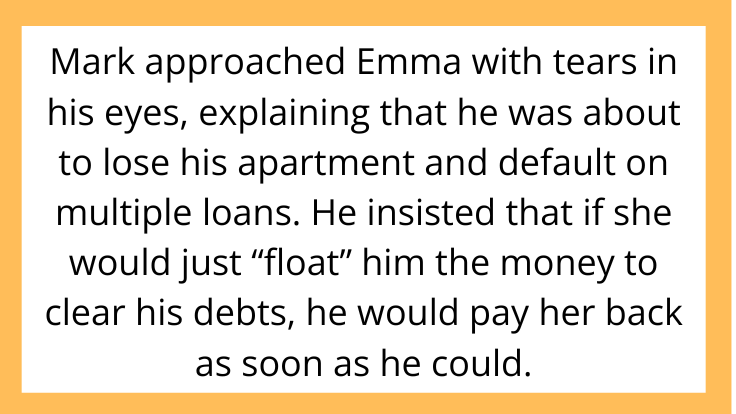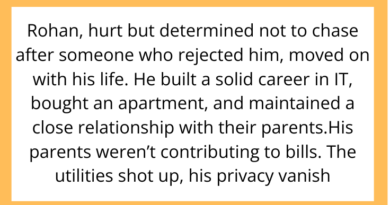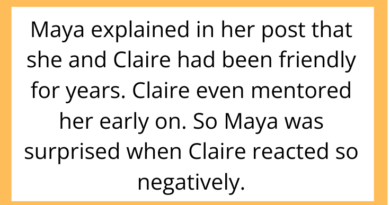AITAH for Refusing to Help My Brother Pay Off His Debt After He Gambled Away His Savings?
When money, family, and personal responsibility collide, emotions can run high. In today’s AITAH scenario, a sibling’s financial disaster becomes everyone else’s problem—or at least, that’s what he insists. But does family loyalty mean footing the bill for bad choices?
Let’s look at what happened and whether this refusal makes someone heartless—or simply realistic.
The Situation: A Brother in Over His Head

The poster (let’s call her Emma), a 32-year-old accountant, shared her story on r/AITAH. Her younger brother, Mark, 28, had always been a bit reckless with money. For years, he’d taken out small loans, spent more than he earned, and gotten into credit card trouble.
Things took a turn for the worse when Mark started gambling. It began as “just for fun” poker nights with friends. Before long, he was making frequent trips to casinos and online betting sites. Eventually, he blew through all of his savings—around $25,000—and racked up over $15,000 in credit card debt.
When the bills came due, Mark turned to Emma and their parents, asking for help.
The Request: Bail Me Out…Because We’re Family

Mark approached Emma with tears in his eyes, explaining that he was about to lose his apartment and default on multiple loans. He insisted that if she would just “float” him the money to clear his debts, he would pay her back as soon as he could.
Emma was sympathetic—she knew addiction can be powerful. But she also felt uneasy. Over the years, she’d loaned Mark money on smaller occasions and had never been repaid. This time, she said no.
She offered to help him find a credit counselor, explore debt consolidation, and even drive him to a Gamblers Anonymous meeting. But she drew the line at paying off his debt.
Mark was furious. He accused Emma of abandoning him and caring more about money than family. Their parents were split—Emma’s father agreed with her stance, but her mother begged her to reconsider.
Feeling guilty, Emma turned to Reddit: Am I the villain for refusing to bail out my brother after he gambled away his money?
The Internet Reacts: Tough Love or Cold-Hearted?

Reddit’s r/AITAH community is no stranger to family money drama, and the responses were clear: Emma was not the villain.
Why Emma Was Justified
-
Enabling vs. Helping: Many commenters pointed out that giving Mark money again would only enable his addiction.
-
Past Behavior Predicts Future Behavior: Emma had already lent Mark money multiple times and had never been repaid.
-
Boundaries Are Healthy: Saying no doesn’t mean you don’t care—it means you’re not willing to sacrifice your own security for someone who won’t change.
One commenter wrote:
“If you give him the money, you’re basically telling him there are no consequences. Sometimes rock bottom is the only teacher.”
The Other Side: Family Means Support

A smaller group of commenters sympathized with Mark, arguing that debt can be overwhelming and that family should be a safety net in emergencies. A few suggested Emma might consider a partial loan under strict conditions—such as Mark agreeing to financial counseling.
But even these sympathetic voices agreed that Mark needed to demonstrate real accountability before expecting help.
Addiction, Responsibility, and Boundaries
This scenario brings up important questions about where support ends and enabling begins.
Helping a loved one in crisis can be compassionate—but not if it means erasing the consequences of destructive behavior. By offering practical support without paying the debt, Emma showed she cares while still protecting herself.
How Emma Can Move Forward

Emma’s next steps could include:
-
Encouraging Mark to get professional help.
-
Helping him create a realistic repayment plan with creditors.
-
Offering emotional support without financial entanglement.
Ultimately, Mark’s recovery has to come from within—not from another bailout.
The Takeaway: Saying No Doesn’t Make You the Villain

If you’ve ever been pressured to “just help out” when a relative makes reckless choices, you’re not alone. Setting financial boundaries can feel cruel, but it often protects everyone in the long run.
Emma’s story shows that you can love someone and still refuse to enable them.



